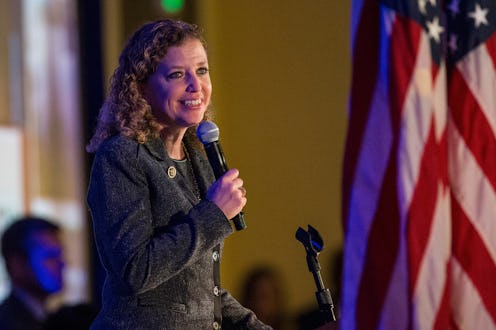News
The Last Time Superdelegates Mattered
Superdelegates have been a controversial topic throughout the 2016 Democratic primary, and the debate over the fairness of their inclusion in the nomination process can be expected to intensify as it grows increasingly likely that frontrunner Sec. Hillary Clinton will not secure enough pledged delegates during the primaries to get the delegate majority needed for the nomination. That means she may end up needing superdelegates to get her to the 2,383 required to win it. When is the last time superdelegates mattered?
Democratic National Committee Chair Debbie Wasserman Schultz has attempted to quell the anger of Sanders supporters, who early on feared the supers would vote for Clinton even if Sanders won the popular vote, by saying that they "have never been a determining factor in who our nominee is since they've been in place since 1984," PolitiFact reported. But did they play an important role in 1984?
No election since 1984 has required superdelegates to tip the nomination one way or another, but that year's may have. That's right — may have. Apparently, the delegate allocation system is so complex that party leaders at the time as well as news outlets actually disagreed on whether candidate Walter Mondale, who was competing against Gary Hart and Rev. Jesse Jackson, had won a delegate majority during the primaries.
An Associated Press article at the time said Mondale was still short of a majority after the last primaries. University of Oregon Professor Priscilla Southwell told PolitiFact that, though Mondale won a plurality of votes, he wouldn't have won a majority of delegates on the first round of voting at the Democratic National Convention without the supers siding with him.
A woman who counted delegates for Mondale named Elaine C. Kamarck muddied the waters further, telling PolitiFact that it may have been unbound delegates from state elections that tipped the nomination to Mondale, not superdelegates, whose unbound status is attributed to the office they hold or held. So, according to Kamarck, it may not have necessarily been supers who tipped the nomination, but it was, nonetheless, delegates unbound by the primary results.
Clinton needs about 80 percent of the pledged delegates in the last week of primary voting to reach 2,383 — a very tall order, and one not likely to be served up. The last time superdelegates mattered, maybe, was 1984. But in 2016, the importance of the supers is poised be more apparent.
